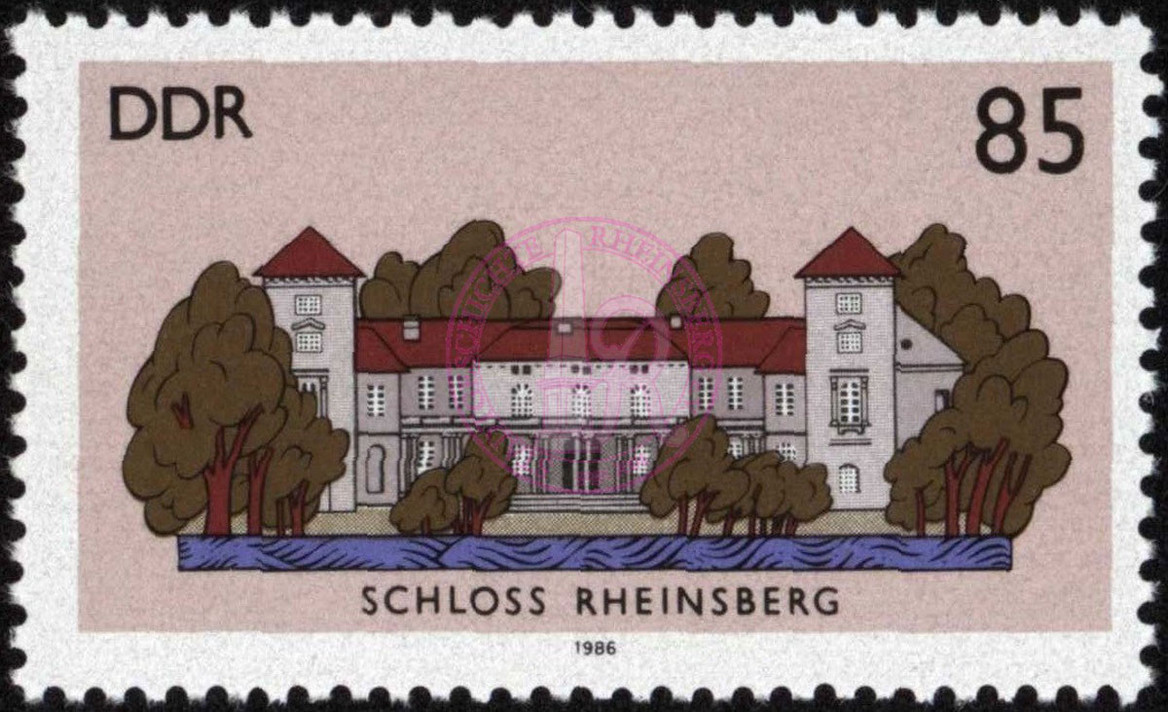Main Content
Showing how Buildings Are Made into "Authentic" Places
Website urban-authenticity.eu Goes Live

The baroque city church, a Wilhelminian villa, a park - such buildings are considered "authentic" and representative of cities. But what about buildings from more recent history, especially the history of the GDR? The research project "Urban Authenticity" has investigated processes of authentication and now presents the results on an interactive website. It documents the history of building and discourse on the basis of over 50 examples, mainly in Berlin-Brandenburg. Not only buildings in Berlin and Potsdam are presented, but also numerous examples in rural Brandenburg. These tell stories of eradication, but also of the preservation of built local identity.
With a public online event on 22 March 2023, the research network "Urban Authenticity: Creating, Contesting, and Visualising the Built Heritage in European Cities since the 1970s" presented its website "urban-authenticity.eu" to the public for the first time. The website is the centrepiece of the public relations work of the research network, which has been active since June 2020 and held its final scientific conference on 16 and 17 March 2023.
Stories of Rescue and Loss
The Humboldt Forum in Berlin, the Bierpinsel in Steglitz, the Karl Liebknecht Stadium in Potsdam, the Old Town in Jüterbog, the New City Centre in Cottbus, the Kulturhaus in Schwedt - the website "urban-authenticity.eu" presents the stories of buildings and urban spaces in Berlin and Brandenburg and contextualises them with the help of a small selection of other examples from Europe, such as the Nazi Party Rally Grounds in Nuremberg and the suspension ferry in Marseille. It explores the question of how, why and by whom some buildings were marked as particularly representative, "authentic" and worthy of preservation, while others were denied this label, abandoned to decay or demolished. The website makes reference to recent debates on historical policy that have received widespread attention, such as the Humboldt Forum in Berlin and the controversial reconstruction of the Garrison Church in Potsdam. While descriptions are in German language only, the site also presents plenty of visual materials.
What makes the website special, however, is that it goes beyond the well-known sites in big cities and also presents built local history at many lesser-known places. "We are not making a Berlin 2.0 tourist guide, we are not showing for the hundredth time how beautiful the Brandenburg Gate is," says network coordinator and historian Daniel Hadwiger from the Research Area Contemporary History and Archives. Instead, cities in Brandenburg and especially their more recent architectural history are given special weight in the presentation. "Houses of culture, for example, were something very unique in the GDR and important bearers of identity. We show some stories of rescue, but also many stories of loss," says Hadwiger.
Searching for Profiles by Theme or Place
The 50 or so "profiles" illuminate the stories of the buildings in brief explanatory texts, contemporary quotations and documentary photos. There are also whimsical items, such as the picture of a beer mug with the emblem of the Schwedt Kulturhaus. The contents can be accessed both via a map and thematically. Each profile is keyworded. Top themes in the menu navigation have titles such as "Aufwertung" (Upgrading), "Abwertung" (Downgrading), "Nostalgie" (Nostalgia), "Vermarktung" (Marketing) or "Zukunftsort (Future Place). Listed under the latter two is, for instance, the Ostsee (East Lake) near Cottbus - a yet unrealised post-mining landscape that is intended to serve as an identity carrier in a post-fossil age.
The website is part of the research project "Urban Authenticity: Creating, Contesting, and Visualising the Built Heritage in European Cities since the 1970s", funded by the Leibniz Association. Project partners are the IRS, the Zentrum für Zeithistorische Forschung Potsdam e.V. (ZZF), the Institut für Zeitgeschichte, München-Berlin (lfZ), the Herder-Institut für historische Ostmitteleuropaforschung - Institute of the Leibniz Association and the Museumsverband Brandenburg e.V.

